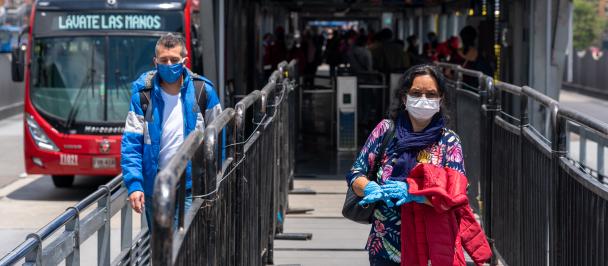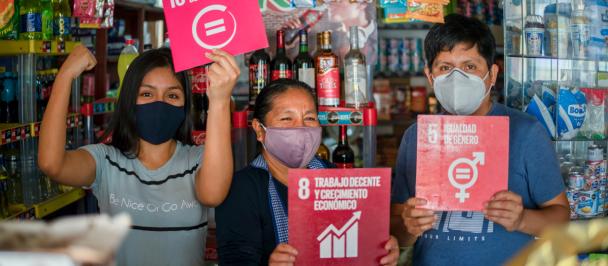COVID-19 presents us with an unprecedented opportunity to make societies more inclusive, efficient, and with higher levels of resilience. Recovery is about effective governance and requires a strong component of institutional transformation to be effective.
It is estimated that 30 million people in Latin America and the Caribbean could fall into poverty because of COVID19. This exemplifies the fragility of growth and governance, and poses a great risk to social cohesion. Citizens will be hungry and angry at the same time.
Governance is the enabling process of opportunities for development. Today, this response requires governance that fosters agreements for institutional transformations and creates conditions where recovery means that in future stay-at-home policies, institutions continue to function, and where disruption is minimized.
Governance challenges
Only a month ago, I was arguing that Latin America and the Caribbean was facing five structural governance challenges that will define the implementation of the 2030 Agenda for Sustainable Development during this decade. These challenges are related to structural deficits that with the rise of social media are becoming evident and trigger social, economic and political tensions and social protests. They are:
1. Effective governance to enable the generation of equitable opportunities
2. Changing rule of the game (eg. policies) to reduce inequalities
3. Institutional transformations for digital solutions
4. Tolerance for human rights
5. Peaceful coexistence and citizen security
But suddenly, an invisible but vicious virus has changed that argument upside down. It has made it spin and turned the reality to one realization. Life is frail and our health is fragile. If we had thought that consolidating societies that are inclusive, resilient and efficient means lifting people out of poverty, the emerging realization is that it will be a monumental task ahead.
For middle-income economies, struggling to become middle-class societies, such as those in Latin America and the Caribbean, governance turns out to be the most relevant instrument for recovery. This means creating opportunities for people to forge their destinies. Governance is the process by which opportunities are generated.
Exposing inequalities
COVID-19 is exposing inequalities in new dimensions. While the virus is truly democratic as it affects us irrespective of race, ethnicity, gender or background; the economic and social consequences of its impact are nothing but egalitarian, as they are harsher on the most vulnerable. Resilience needs a new name as we are about to start a recession, it will push people back into poverty and enhance the citizens´ distrust, an explosive mix.
Social distancing is exposing new challenges. The responsibility to respond to the pandemic heavily relies on the state, which as an institution is facing a crisis of trust. But citizens are now looking to the state to provide health care, relief, protection, and even comfort in this moment of uncertainty. The state is also faced with the dangers of misinformation and “fake news” in greater proportions. And in the post-pandemic recovery phases, the state will be tasked again to “build back better” in the jargon of recovery operations. This means the state will need to be strengthened to be more adaptable, to bring about institutional transformations and to transition from analog to digital responses.
The five governance challenges remain valid, but on top of them, a more pressing one has taken precedence. To deal with this new challenge we need three vaccines:
- A vaccine against the COVID-19, so the death rate drops, and the spread of contagion is contained. We must learn to live with the virus.
- A vaccine against misinformation and “fake news”, we have already seen information that is not true and intended to confuse and bring fear to populations. This misinformation is mostly used as political tool to discredit the state.
- A vaccine for the state and public institutions in the sense they need to respond with higher efficiency levels in their provision of public services. And on top of that, states need to do this with greater transparency to regain the trust of citizens.
During the pandemic the public health system has the full weight of the response, but also public institutions must ensure law and order are maintained. In post-pandemic periods, it will be a huge challenge to reestablish core government functionality and public services.
UNDP´s approach to COVID 19 is three-pronged. It is about preparedness, response, and recovery. Governance has a key role to play in these three stages. To forge accords among actors to prepare, to implement response plans and strategies that are inclusive and under the rule of law. But most importantly, to ensure agreements consider a recovery that looks at ensuring institutions keep functioning, relief assistance reaches where it is most needed and peace and social cohesion can be strengthened. A new normal is about to start and the state needs to be prepared.

 Locations
Locations

